Navigating the world of air freight from China to Europe can be both exciting and complex. In this comprehensive guide, we will explore the intricacies of air freight, highlighting its benefits, current trends, and key factors influencing costs. Understanding the shipping methods, the role of freight forwarders, and customs clearance challenges is crucial for successful international shipping. Join us as we delve into the essential elements that make air freight an invaluable solution for businesses looking to streamline their logistics and enhance their supply chain efficiency.
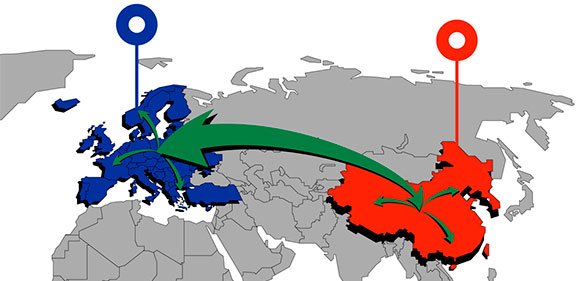
Understanding Air Freight: A Comprehensive Overview
What is Air Freight?
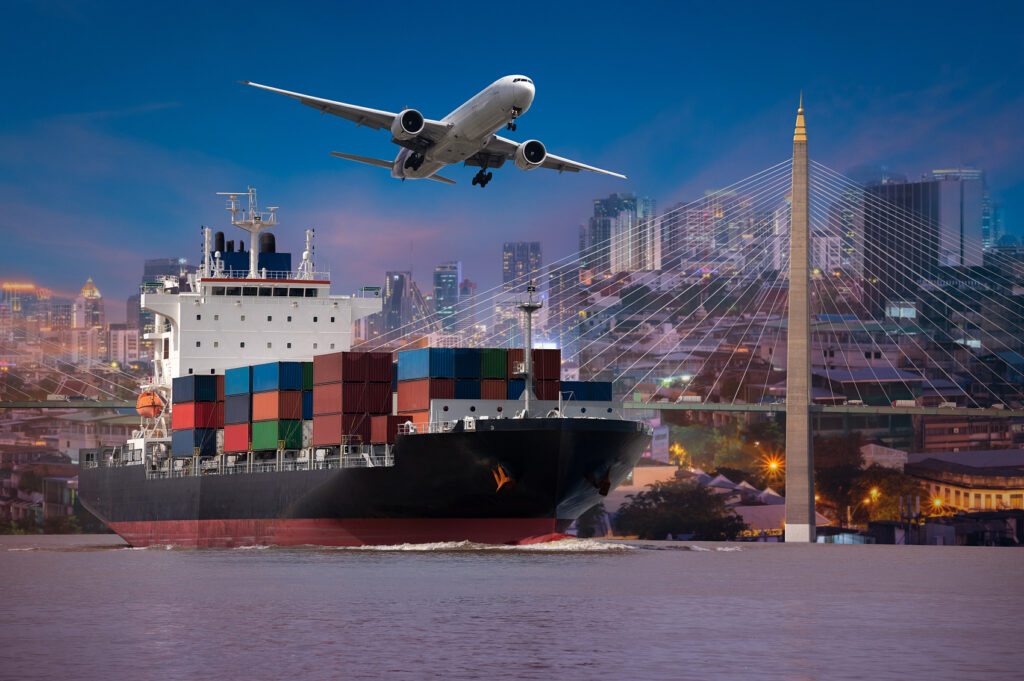
Air freight is the transportation of goods via aircraft, a method that offers rapid shipment of cargo over long distances. This logistics service is particularly beneficial for the movement of high-value, time-sensitive, and perishable goods. Unlike other methods such as ocean freight, which can take weeks to deliver, air freight allows for much quicker transit times, typically ranging from one to seven days depending on the origin and destination.
This mode of shipping is facilitated by cargo airlines and freight forwarders, which coordinate the logistics of shipping goods effectively. Dantful International Logistics, as a highly professional and cost-effective freight forwarder, specializes in managing air freight services to ensure that your shipments from China to Europe are handled with utmost care and efficiency.
Benefits of Air Freight for Importing Goods
There are several compelling advantages to using air freight when importing goods from China to Europe:
Speed: Air freight is significantly faster than other shipping methods, allowing businesses to respond quickly to market demands and minimize inventory costs.
Reliability: Airlines generally maintain strict schedules, leading to predictable delivery times. This reliability is crucial for businesses that need to maintain tight production and distribution schedules.
Safety: Air cargo is typically safer due to stringent security measures implemented by airlines. This means fewer damages and losses compared to other shipping methods.
Global Reach: Air freight provides access to remote locations that may not be serviced by sea or land transport, making it an ideal choice for companies looking to expand their market reach.
Reduced Packaging Costs: Since air freight is faster, there is less need for heavy packaging, which can lead to cost savings.
In summary, air freight is a vital component for businesses aiming to import goods quickly and efficiently, ensuring that supply chains remain agile and responsive to consumer needs.
Comparing Air Freight to Other Shipping Methods
To appreciate the advantages of air freight, it’s essential to compare it with other shipping methods, particularly ocean freight and rail freight.
| Feature | Air Freight | Ocean Freight | Rail Freight |
|---|---|---|---|
| Transit Time | 1-7 days | 20-40 days | 7-20 days |
| Cost | Higher per kg | Lower per kg | Moderate per kg |
| Ideal for | High-value, perishable goods | Bulk, non-urgent shipments | Medium to heavy goods |
| Reliability | High | Moderate | Moderate |
| Tracking | Real-time tracking available | Limited tracking | Limited tracking |
In conclusion, while air freight may be more expensive than other options, its speed and reliability make it an indispensable choice for many businesses, particularly those importing goods from China to Europe.
Read More:
- Shipping From China To Netherlands
- Shipping From China To Spain
- Shipping From China To Germany
- Shipping From China To France
- Shipping From China to Italy
- Shipping From China To Poland
- Shipping From China to United Kingdom
The Current Landscape of Air Freight from China to Europe
Recent Trends in Air Cargo Rates
The air cargo rates from China to Europe have been subject to fluctuations due to various factors, including supply and demand dynamics, fuel prices, and global trade policies. As of 2023, the average air freight rate has seen a gradual decrease compared to the peak rates experienced during the COVID-19 pandemic, where rates were exceptionally high due to capacity constraints. Current data indicates that the rates have stabilized, yet they remain higher than pre-pandemic levels due to ongoing geopolitical tensions and fuel price volatility.
Impact of Global Events on Air Freight
Global events such as the pandemic, geopolitical conflicts, and economic fluctuations significantly impact air freight operations. The ongoing tension between major powers can restrict air routes and increase shipping costs. Additionally, disruptions in the supply chain, such as those caused by natural disasters or political unrest, can lead to delays and increased costs. Businesses must stay informed about these developments to manage their logistics effectively and adjust their strategies accordingly.
Year-over-Year Growth in Air Freight Volume
Air freight volume has demonstrated a robust year-over-year growth, particularly post-pandemic. According to the International Air Transport Association (IATA), air cargo volumes have increased by approximately 10% compared to the previous year, driven by a surge in e-commerce and the demand for expedited shipping options. This trend underscores the importance of air freight in modern supply chains, especially for businesses importing goods from China to Europe. Companies like Dantful International Logistics are well-positioned to leverage this growth, providing tailored air freight solutions that meet the unique needs of their clients.
In summary, understanding the current landscape of air freight from China to Europe is crucial for businesses looking to import goods efficiently. By leveraging the benefits of air freight and staying informed about trends and challenges, companies can optimize their supply chains and remain competitive in the global marketplace.
Key Factors Influencing Air Freight Costs
Breakdown of Air Freight Pricing Structures
Understanding the pricing structures involved in air freight is crucial for importers aiming to optimize their shipping costs. Generally, the cost of air freight is determined by various factors including weight, volume, distance, and the nature of the goods being transported. The primary components of air freight pricing include:
| Pricing Component | Description |
|---|---|
| Base Rate | The fundamental charge per kilogram or cubic meter, which varies by carrier. |
| Fuel Surcharge | An additional fee to cover fluctuating fuel costs, typically calculated as a percentage of the base rate. |
| Security Charges | Fees imposed due to enhanced security measures post-9/11, which can vary based on regulations. |
| Handling Fees | Charges for the physical handling of cargo at airports and warehouses. |
| Customs Clearance Fees | Costs associated with processing necessary documentation and duties for import. |
Factors Affecting Spot Rates and Contract Rates
Spot Rates for air freight are the prices charged for immediate shipments, while Contract Rates are pre-negotiated prices for longer-term agreements. Several factors can influence these rates:
Demand and Supply Dynamics: Spot rates often fluctuate based on seasonal demand spikes, such as during holidays or special events. Conversely, contract rates may provide stability during these periods by locking in pricing.
Carrier Capacity: If airlines are operating at or near capacity, spot rates may increase. In contrast, ample cargo space can lead to lower rates.
Weight and Dimensional Weight: Heavy or oversized shipments may incur higher charges, especially if they exceed standard weight or size limits.
Market Trends: Changes in global trade, such as shifts in manufacturing locations or trade agreements, can significantly impact both spot and contract rates.
The Role of Geopolitical Tensions on Pricing
Geopolitical tensions can have a profound impact on air freight pricing. Events such as trade disputes, sanctions, and conflicts can disrupt established trade routes and supply chains. For example:
- Trade Tariffs: Increased tariffs can lead to higher costs for importers, affecting overall air freight pricing.
- Flight Restrictions: Political instability may result in flight cancellations or route changes, leading to increased transit times and costs.
- Insurance Premiums: Higher risks associated with certain regions can lead to increased insurance costs, which are often passed down to shippers.
Importers should stay informed about global political events and analyze how they might affect both air freight costs and overall supply chain efficiency.
Choosing the Right Air Freight Forwarder
Essential Qualities of a Reliable Freight Forwarder
Selecting a reliable freight forwarder can significantly influence the efficiency of your air freight operations. Here are some essential qualities to consider:
Experience and Expertise: An established forwarder should have extensive knowledge of air freight regulations, customs processes, and logistics management.
Global Network: A well-connected forwarder can ensure better shipping options and can facilitate smoother customs clearance, making them a valuable partner.
Transparency: A trustworthy forwarder will provide clear pricing structures and timely communication throughout the shipping process.
Customer Service: Responsive customer service is crucial for addressing any issues that may arise during transit.
Technology Use: Modern logistics require advanced tracking and management systems. A forwarder that utilizes technology can provide real-time updates and streamline operations.
How Dantful International Logistics Stands Out
At Dantful International Logistics, we pride ourselves on being a highly professional, cost-effective, and high-quality one-stop international logistics service provider. Our commitment to excellence is reflected in several key aspects:
Comprehensive Services: We offer a full range of air freight services including door-to-door shipping, customs clearance, and insurance, ensuring that your shipment is handled from start to finish.
Expert Team: Our experienced team is well-versed in navigating the complexities of international shipping, ensuring compliance and efficiency at every step.
Competitive Pricing: We continually monitor market trends to offer competitive rates without compromising quality.
Personalized Solutions: Understanding that every shipment is unique, we tailor our services to meet the specific needs of our clients.
For businesses looking to import goods from China to Europe, partnering with Dantful International Logistics ensures a smooth, efficient, and cost-effective air freight experience.
Customs Clearance: Navigating the Process
Importance of Customs Compliance in Air Freight
Navigating customs clearance is a crucial part of air freight logistics, especially when importing goods from China to Europe. Compliance with customs regulations ensures that shipments can clear borders efficiently, avoiding delays and potential fines. Importers must provide accurate documentation and detailed information about the contents of their shipments. This includes invoices, packing lists, and any relevant certificates that verify the nature and value of the goods. The European Union (EU) has stringent customs regulations, which necessitates a thorough understanding of the necessary compliance protocols to prevent complications that could disrupt the supply chain.
Common Challenges and Solutions in Customs Clearance
Customs clearance can present several challenges, including:
Incomplete Documentation: Inadequate or incorrect paperwork is a frequent cause of delays. To mitigate this, importers should ensure that all required documents are filled out correctly, including the Commercial Invoice and Bill of Lading.
Tariff Classification Errors: Misclassifying goods can lead to incorrect duties being applied. To address this, engaging with a knowledgeable freight forwarder can help ensure accurate tariff classifications.
Regulatory Changes: Customs regulations can change frequently, impacting the import process. Staying informed about current customs policies or utilizing experienced logistics services can help navigate these fluctuations.
Communication Gaps: Poor communication with customs authorities can prolong clearance times. Utilizing a reputable logistics partner, like Dantful International Logistics, can facilitate better communication and expedite the clearance process.
Tips for Smooth Customs Processing
To ensure a seamless customs clearance process, consider the following tips:
Engage a Professional Freight Forwarder: Partnering with a competent freight forwarder, such as Dantful International Logistics, ensures that you have expert advice and support to navigate the complexities of customs.
Prepare Documentation in Advance: Gather the necessary documents before shipment, including commercial invoices, packing lists, and any specific certifications required for your products.
Stay Updated on Regulations: Regularly review the customs regulations that pertain to your goods and the countries involved to ensure compliance.
Provide Accurate Information: Ensure that all declarations made to customs are truthful and complete to prevent delays.
Preparing Your Shipment for Air Freight
Packaging Requirements for Air Cargo
Proper packaging is essential for ensuring that goods are transported safely by air. Here are key requirements:
Use Durable Materials: Packaging should be robust enough to withstand the rigors of air transport. Utilize sturdy boxes or crates and avoid using materials that can easily be damaged.
Labeling: Each package should be clearly labeled with the destination address, contents description, and handling instructions (e.g., “Fragile” or “This Side Up”).
Weight Distribution: Ensure that weight is evenly distributed within the package to prevent shifting during flight, which can cause damage.
Documentation Needed for Air Shipments
Several documents are pivotal for air freight from China to Europe:
Air Waybill (AWB): A crucial shipping document that serves as a receipt and contract between the shipper and the carrier.
Commercial Invoice: Details the transaction between the buyer and seller, including the value of the items being shipped.
Packing List: Provides an itemized breakdown of the contents, which assists customs in the clearance process.
Certificates of Origin: May be required for certain goods to indicate where the items were produced.
Best Practices for Ensuring Safe Transit
To guarantee the safe transit of your air shipment, adhere to these best practices:
Conduct Pre-shipment Inspections: Check the condition of goods before shipping to catch any potential issues.
Use Appropriate Cushioning Materials: Employ bubble wrap, foam, or other protective materials to safeguard items during transport.
Seal Packages Securely: Ensure that all packages are sealed with high-quality tape to prevent accidental openings.
Transit Times: What to Expect When Shipping by Air
Average Delivery Times from China to Various European Destinations
Understanding transit times is essential for planning purposes. Here is a table summarizing average delivery times from major Chinese cities to various European destinations:
| City of Origin | Destination | Average Transit Time |
|---|---|---|
| Shanghai | London | 5-7 days |
| Beijing | Berlin | 6-8 days |
| Guangzhou | Paris | 5-7 days |
| Shenzhen | Amsterdam | 6-8 days |
| Hong Kong | Frankfurt | 4-6 days |
Factors That Can Affect Transit Times
Several factors can influence the transit times of air shipments, including:
Flight Availability: The frequency of flights between origin and destination can affect delivery times.
Customs Clearance: Delays in customs processing can extend the time before shipments are released for final delivery.
Weather Conditions: Adverse weather can lead to flight cancellations or delays, affecting overall transit times.
How to Track Your Shipment Effectively
Tracking your air freight shipment is crucial for staying informed about its status. Here are some effective tracking methods:
Use Tracking Numbers: Most carriers provide a tracking number that can be used to monitor the shipment’s progress online.
Connect with Your Freight Forwarder: A reliable freight forwarder, like Dantful International Logistics, offers tracking services and can provide real-time updates.
Leverage Technology: Utilize mobile apps or online platforms that provide shipment tracking features to stay updated on delivery schedules.
By following these guidelines, importers can enhance their experience with air freight from China to Europe, ensuring efficient customs clearance, proper shipment preparation, and timely delivery.

Young Chiu is a seasoned logistics expert with over 15 years of experience in international freight forwarding and supply chain management. As CEO of Dantful International Logistics, Young is dedicated to providing valuable insights and practical advice to businesses navigating the complexities of global shipping.





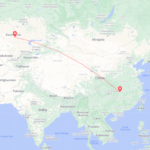


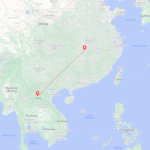

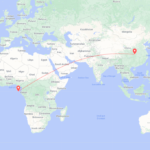
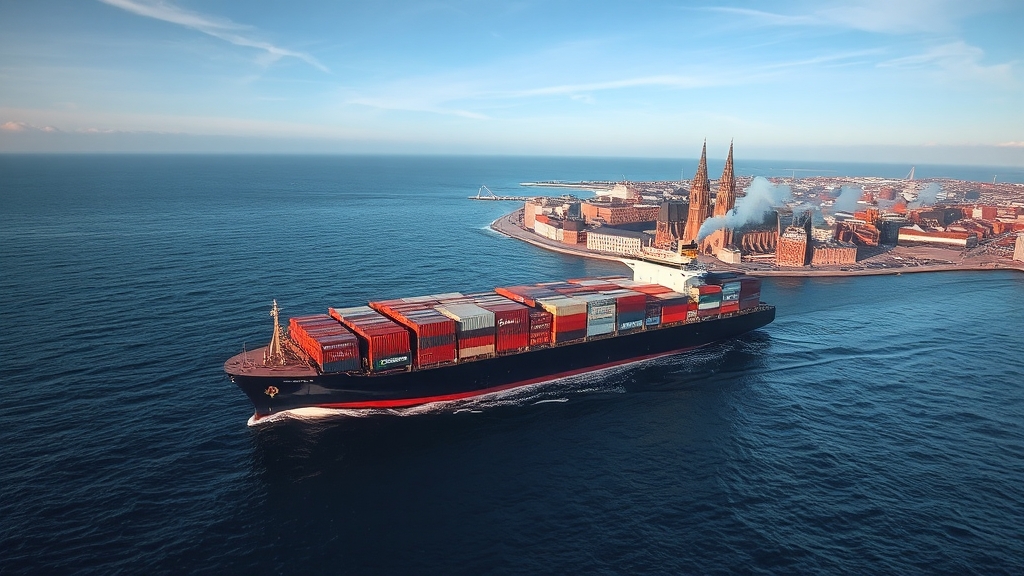
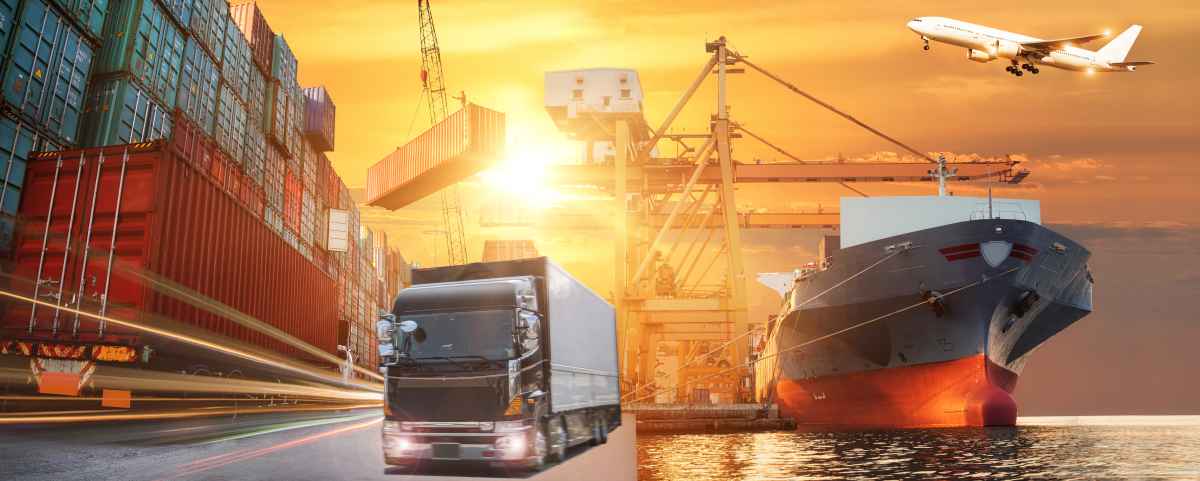
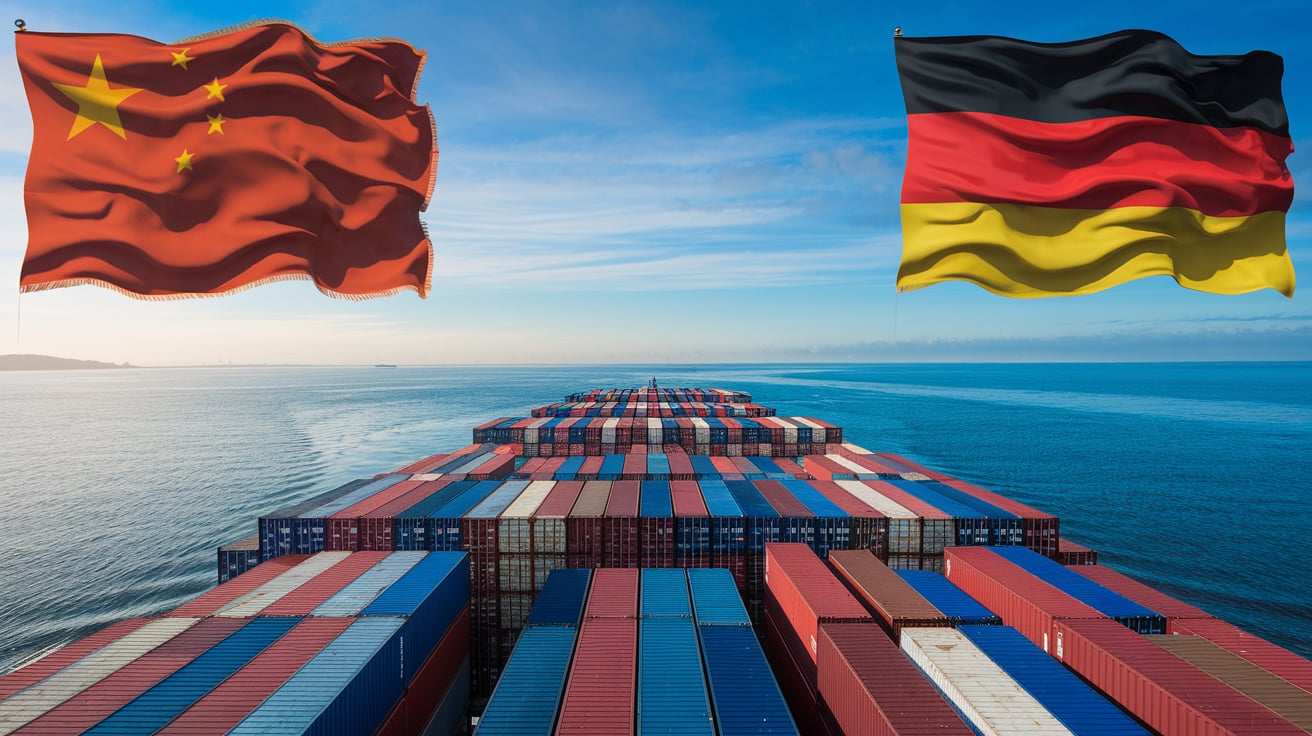
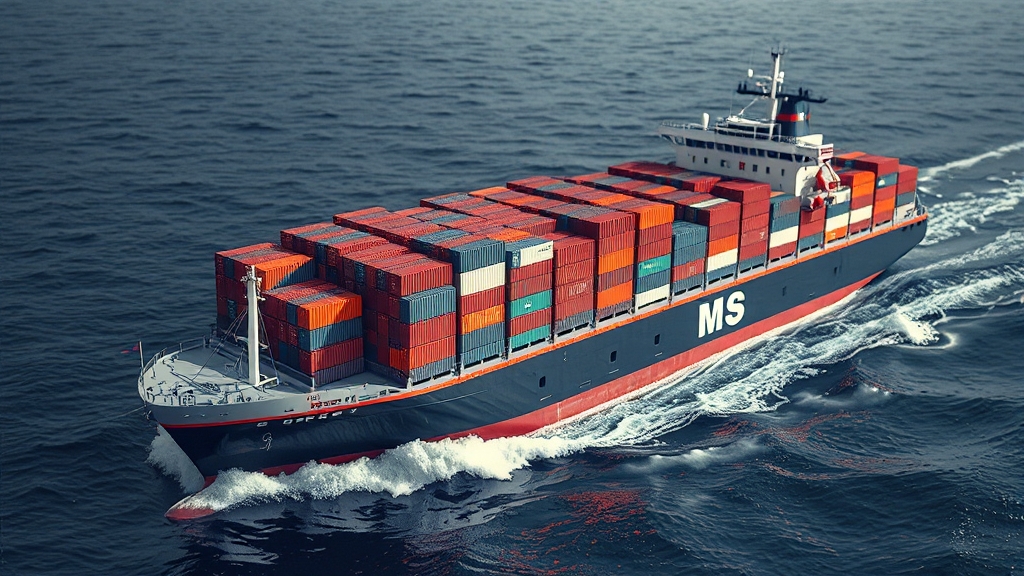
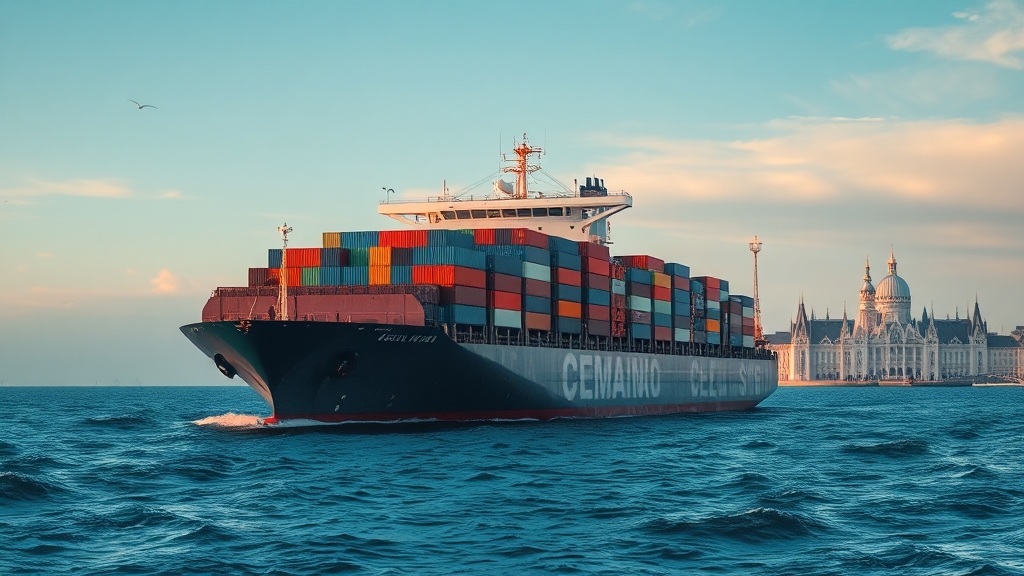





 Afrikaans
Afrikaans Shqip
Shqip አማርኛ
አማርኛ العربية
العربية Հայերեն
Հայերեն Azərbaycan dili
Azərbaycan dili Euskara
Euskara Беларуская мова
Беларуская мова বাংলা
বাংলা Bosanski
Bosanski Български
Български Català
Català Cebuano
Cebuano Chichewa
Chichewa 简体中文
简体中文 繁體中文
繁體中文 Corsu
Corsu Hrvatski
Hrvatski Čeština
Čeština Dansk
Dansk Nederlands
Nederlands English
English Esperanto
Esperanto Eesti
Eesti Filipino
Filipino Suomi
Suomi Français
Français Galego
Galego ქართული
ქართული Deutsch
Deutsch Ελληνικά
Ελληνικά Kreyol ayisyen
Kreyol ayisyen Harshen Hausa
Harshen Hausa Ōlelo Hawaiʻi
Ōlelo Hawaiʻi עִבְרִית
עִבְרִית हिन्दी
हिन्दी Hmong
Hmong Magyar
Magyar Íslenska
Íslenska Igbo
Igbo Bahasa Indonesia
Bahasa Indonesia Gaeilge
Gaeilge Italiano
Italiano 日本語
日本語 Basa Jawa
Basa Jawa ಕನ್ನಡ
ಕನ್ನಡ Қазақ тілі
Қазақ тілі ភាសាខ្មែរ
ភាសាខ្មែរ 한국어
한국어 كوردی
كوردی Кыргызча
Кыргызча ພາສາລາວ
ພາສາລາວ Latin
Latin Latviešu valoda
Latviešu valoda Lietuvių kalba
Lietuvių kalba Lëtzebuergesch
Lëtzebuergesch Македонски јазик
Македонски јазик Malagasy
Malagasy Bahasa Melayu
Bahasa Melayu മലയാളം
മലയാളം Maltese
Maltese Te Reo Māori
Te Reo Māori मराठी
मराठी Монгол
Монгол ဗမာစာ
ဗမာစာ नेपाली
नेपाली Norsk bokmål
Norsk bokmål پښتو
پښتو فارسی
فارسی Polski
Polski Português
Português ਪੰਜਾਬੀ
ਪੰਜਾਬੀ Română
Română Русский
Русский Samoan
Samoan Gàidhlig
Gàidhlig Српски језик
Српски језик Sesotho
Sesotho Shona
Shona سنڌي
سنڌي සිංහල
සිංහල Slovenčina
Slovenčina Slovenščina
Slovenščina Afsoomaali
Afsoomaali Español
Español Basa Sunda
Basa Sunda Kiswahili
Kiswahili Svenska
Svenska Тоҷикӣ
Тоҷикӣ தமிழ்
தமிழ் తెలుగు
తెలుగు ไทย
ไทย Türkçe
Türkçe Українська
Українська اردو
اردو O‘zbekcha
O‘zbekcha Tiếng Việt
Tiếng Việt Cymraeg
Cymraeg יידיש
יידיש Yorùbá
Yorùbá Zulu
Zulu